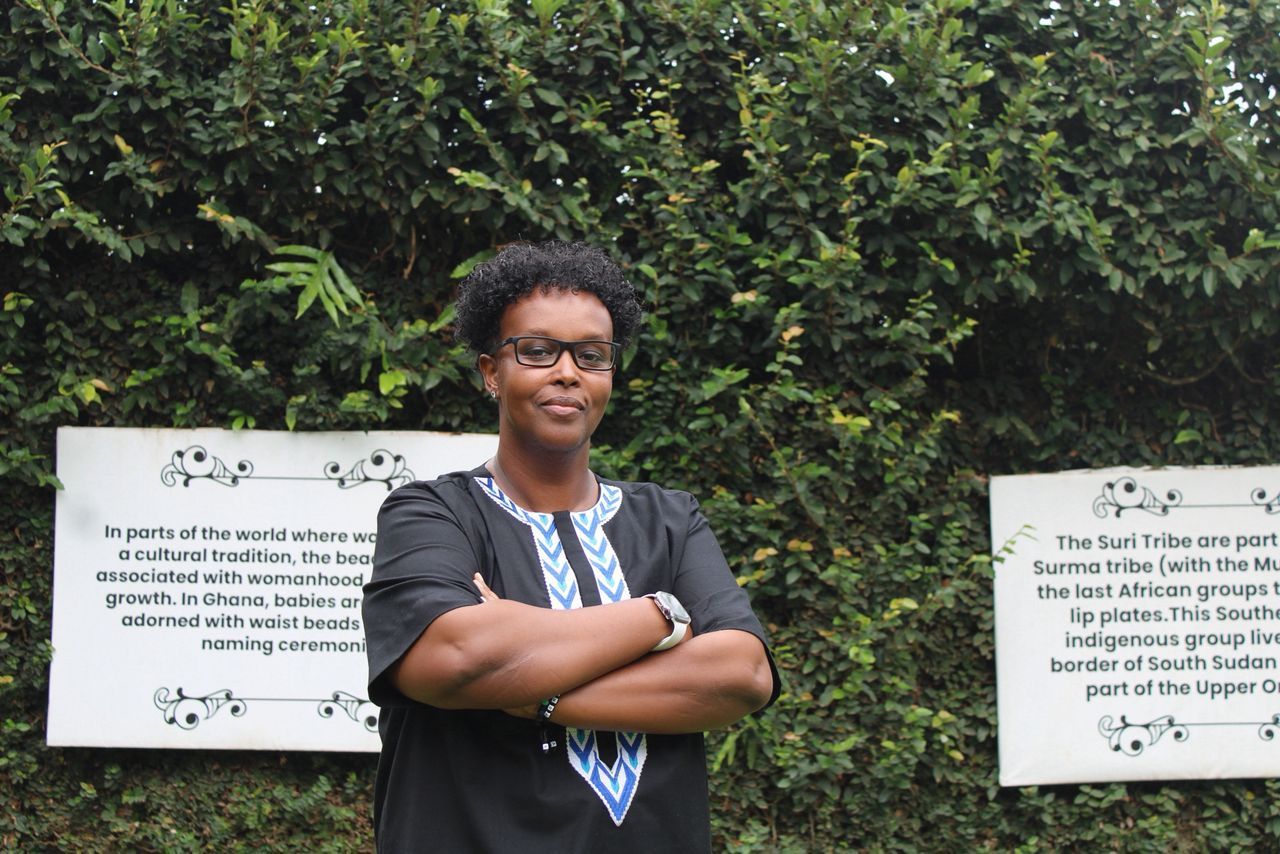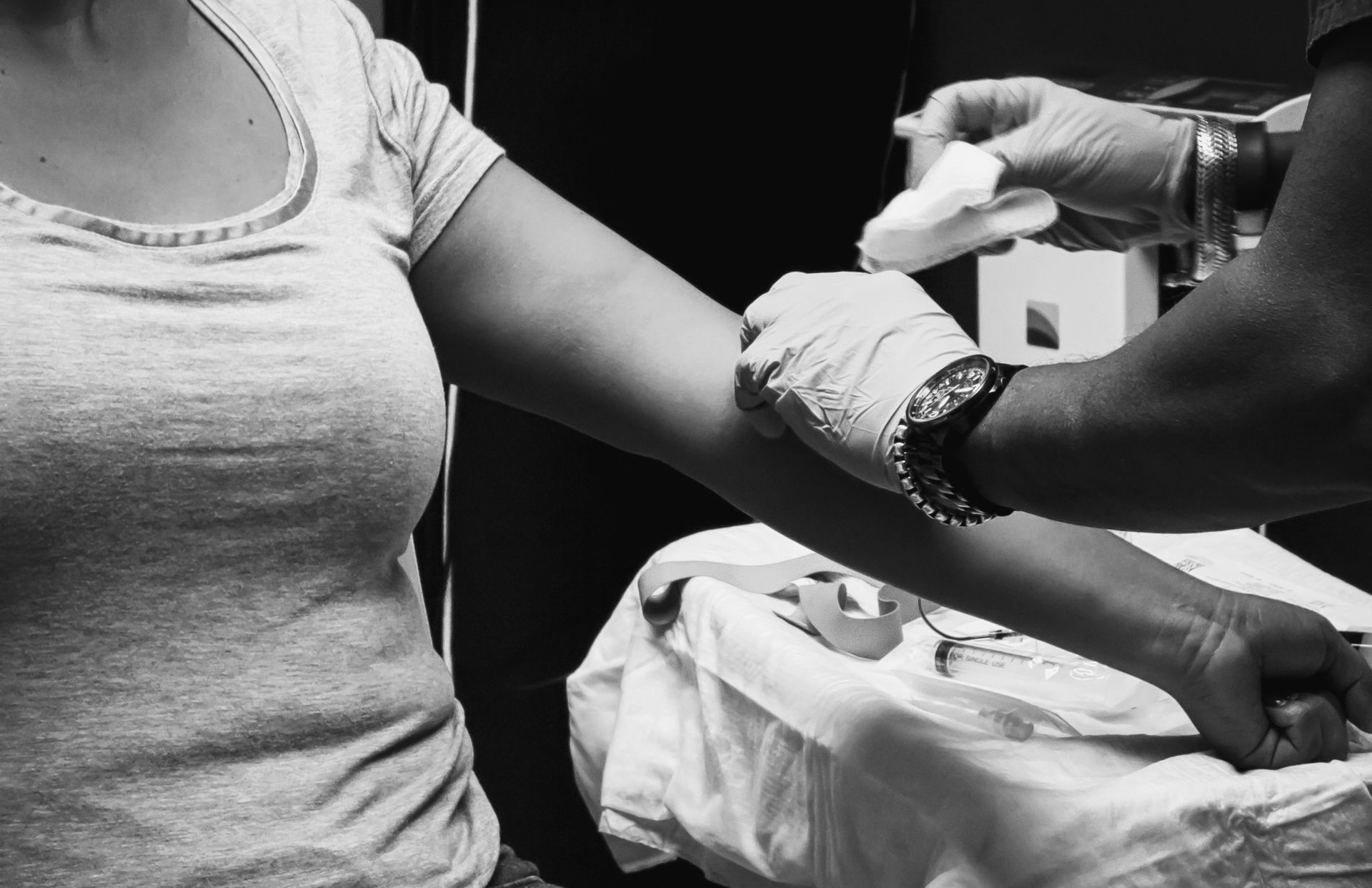Checking On You
Website Editor • March 25, 2020

We’re currently facing a global pandemic. If you find yourself saying “dear God! What do I do?!” you’re not alone. You may also be feeling anxious, scared, alone or a mixture of all. We are with you. Thinking about you, sending you good energy and hoping you feel loved and cared for in this time.
A renegade bug is showing how deeply broken our system is. Beyond the absolutely critical tasks of taking care of yourself, harm-reduction, social distancing, hand-washing, and looking out for those around us who are most struggling, we as feminists must also make that brokenness plain. We do not get to choose the historic moments we are born into, but we do get to choose how we respond. And as we recover, and put our world back together, we have a chance to put it back together differently and better. In that spirit, we are taking time to check on you and make sure that you are taking good care of yourself. We are living in very unprecedented times where our deepest duty is to care and show sisterhood solidarity to one another. Try out these seven tings and see how they help you go through this time:
1. Take leadership in your spaces (Office, place of worship, neighborhood, family etc.). We sink or swim together! Our actions today and in the coming days must be oriented toward lifting up those on the frontlines and those that like us, maybe scared, anxious or affected by the virus. Try and do your part in these times, forgive someone’s debt, buy groceries for someone, offer paid leave, give your team time off, enable people around you access information, call and talk to someone, offer some encouragement. These are basic acts of solidarity that may help us get through this.
2. Follow simple rules. Like the coronavirus itself, which multiplies a simple cough into a global pandemic, we, too, by following simple rules — from washing hands to small acts of kindness to a flash mob in Italy that goes viral — can both defend against the virus and scale-up our activism.
3. Practice cultural Disobedience. Who knew that overthrowing patriarchy could help fight a virus, but consent culture is more important now than ever! It is not appropriate to touch or hug without asking first. We can elbow bump. We can bow. We can connect heart to heart instead of hand to hand. If slowing down and prioritizing care for loved ones is bad for the economy, then maybe it’s time for some new rules! Let’s prioritize compassion, provide needed services, and reclaim non-mainstream marginalized histories and experiences that show healthier ways of being.
4. Get creative. Business cannot remain as usual! What do you do when you can’t go out and organize mass protests? Get creative, as people all around the world are doing. Necessity is indeed the mother of invention and in response to this unprecedented moment, we are seeing a proliferation of creative tactics that build community and pressure the powerful. Be part of the solution, not the problem. Rituals can be a powerful tool for decreasing anxiety, building community, and unlocking the power of collective contemplation and action. Many faith leaders are responding to this moment by coordinating virtual services. Our familiarity with ritual makes it a great format for self-organizing.
5. Be careful with yourself and with others. Flatten the curve. So, we can rise up together for the long haul. Rest and joy are also radical acts. Stay home, restrict movements and if you must risk exposure, be careful.
6. Find opportunity to build a solidarity economy. Why wait when we can build the future now? Many of the actions we’re seeing are prefigurative interventions: mutual aid, free online classes, food sharing, buying local and spending more time in nature. This crisis can be an emergent opportunity to change oppressive policies for good. As J.M. Greer says, “Let’s turn new normals into new beautifuls.”
7. See things differently, change your perspective. Let us reframe our work and messaging toward a systems approach. “Social distancing” can be reframed as “spacious solidarity,” which connects us together in an act of taking space, rather than self-isolation. creative re-framing can help expose those oppressive structures as arbitrary and requiring systemic change.
If you're looking for support while we are under lockdown, you can connect with us by calling or writing back to us to let us know how you are taking care of you and extending solidarity to your community.
Please stay safe!

For many women and girls, the internet is a place of promise and contradiction. It offers avenues for visibility and power, yet still echoes the same inequalities and harms they navigate offline. It is a site of resistance, and of repetition. As we mark the 16 Days of Activism against gender-based violence, the question, "What would a truly feminist internet look like?" becomes increasingly urgent. The Challenge: Digital Inequality and Online Violence Instead of expanding opportunity, the digital sphere has become another site where women are routinely targeted; through harassment, stalking, data exploitation, and the non-consensual sharing of intimate images (UN Women, 2020). This violence isn't merely "virtual". It has profound, lasting consequences on confidence, employment, and wellbeing, highlighting that gender-based violence in digital spaces is a continuation of systemic inequality, not an isolated issue. The Legal Ground: Digital Rights Are Women’s Rights Too Women and girls have the right to participate online without fear. Digital safety and privacy are not privileges; they are legal rights protected under both national and international law. In Uganda, the Data Protection and Privacy Act (2019) affirms every individual’s right to: privacy of personal information, consent before data collection and sharing, access and correction of their personal data, and protection from unauthorized data disclosure. This means that women have the legal right to control how their images, phone numbers, messages, and biometric information are used and shared online. Non-consensual sharing of personal or intimate data violates dignity and constitutes a breach of the law. Globally, frameworks such as the EU General Data Protection Regulation (GDPR) reinforce similar principles of consent, transparency, and data control (EU, 2016). On the African continent, the African Union Convention on Cybersecurity and Personal Data Protection (Malabo Convention, 2014) emphasizes digital rights and state responsibility to prevent cyber violence and exploitation. A feminist internet, therefore, is rooted not only in social justice, but also in law. Systemic Failure and Lack of Representation Legal protections alone are not enough because technology platforms are designed within patriarchal, profit-driven systems. Algorithms, content moderation tools, and platform policies often embed gender biases, prioritizing engagement and speed over user safety. Features that amplify virality can unintentionally promote harassment, while reporting tools frequently fail to address gendered abuse effectively. Women, particularly those from marginalized communities, are also underrepresented in tech leadership and digital policymaking (APC, 2022). This combination of exclusion and systemic bias means platforms rarely center care, equity, or inclusion. Paired with harassment and surveillance, these gaps turn potential digital empowerment into risk, leaving women and girls vulnerable and reinforcing barriers to participation and freedom online. reinforcing barriers to participation and freedom online. A Way Forward: Building the Feminist Internet We Deserve To build the feminist internet we deserve, we must articulate what we are striving toward, not only what we are resisting. A feminist internet is one where safety isn’t a privilege, where content moderation centres survivors rather than trolls. It is an internet where data belongs to the people who generate it, where access is equitable, and where girls can learn, create, and lead without fear of surveillance, shame, or harm. The fight for a feminist internet is fundamentally the fight for freedom itself. It calls us to reclaim digital spaces that have too long been shaped without us, and often against us. A feminist digital future must be built on openness, safety, and justice, not surveillance, profit, or fear. This requires more than just access; it demands agency. Women and girls must not only log in; they must be given the chance to lead, to design, code, legislate, and imagine technology that protects rather than polices them. By prioritizing the voices of diverse groups in the development of digital policies and frameworks, we can move toward a more just and inclusive digital future. Emphasizing critical digital literacy will empower women to navigate online spaces safely and effectively, enhancing their ability to participate fully in both digital and civic life. Conclusion A feminist internet thus demands intention; from the code we write, to the policies we lobby for, to the care we extend toward one another online. Building a just and fearless digital future will not emerge by default. It begins with the choice to centre safety, consent, and justice in every digital space we design, govern, and inhabit. The time for passive connection is over. The time to build the feminist internet we deserve is now. Article by Esther Awor
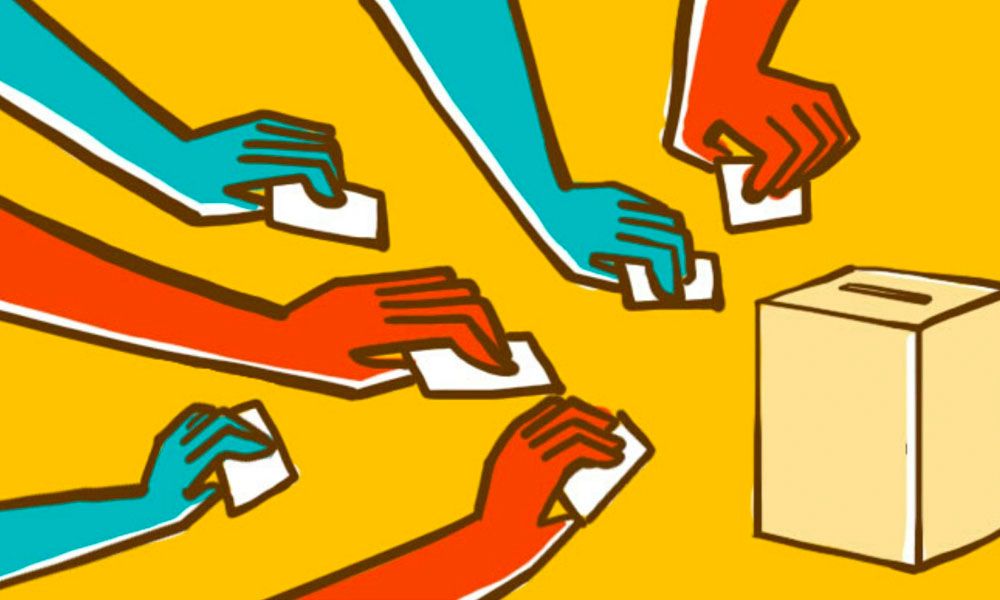
I was privileged to be selected as one of the participants of the 3rd National Youth Symposium 2025, hosted by the Netherlands Institute for Multiparty Democracy (NIMD). The gathering could not have come at a more revealing time for Uganda’s political journey. Under the theme “Reflection on 20 Years of Multiparty Politics: The Role of Young People in Building a Democratic, United, and Prosperous Uganda,” the symposium brought together young voices across political, social, and regional lines to reflect on how far we’ve come, and who gets to shape where we go next. As the country prepares for the 2026 general elections, this political season offers more than campaign posters and nomination rallies. It offers an opportunity to pause and ask: What does genuine participation look like when so many young people still feel unheard? What happens when voter registers raise credibility concerns, or when civic education rarely reaches the grassroots in meaningful ways? At Femme Forte, we also ask what these gaps mean for whose voices are left out; especially young women and girls, who continue to face layered barriers even in spaces meant to include them. The Price of Competing, and the Cost of Exclusion Securing a political party’s flag has always come with hidden costs, but this year, the stakes have become clearer than ever. For many young Ugandans who dream of contesting in 2026, the rising nomination fees have turned a party flag into an expensive hurdle rather than a gateway. According to (The Daily Monitor, 2025), a presidential ticket under the ruling NRM now costs 20 million UGX, while an MP slot costs 3 million, and even a local councilor position can demand up to 1 million. While the NRM defends these fees as a way to “screen serious candidates,” the reality is that the price of entry often screens out those with the most at stake: young people, who make up the largest share of Uganda’s population but hold the smallest share of its wealth. In stark contrast, the Forum for Democratic Change (FDC) charges 5 million for president, 100,000 for MPs, and nothing for councilors. Meanwhile, the National Unity Platform (NUP) currently asks for no nomination fees at any level, positioning itself as more accessible to young and less resourced aspirants.
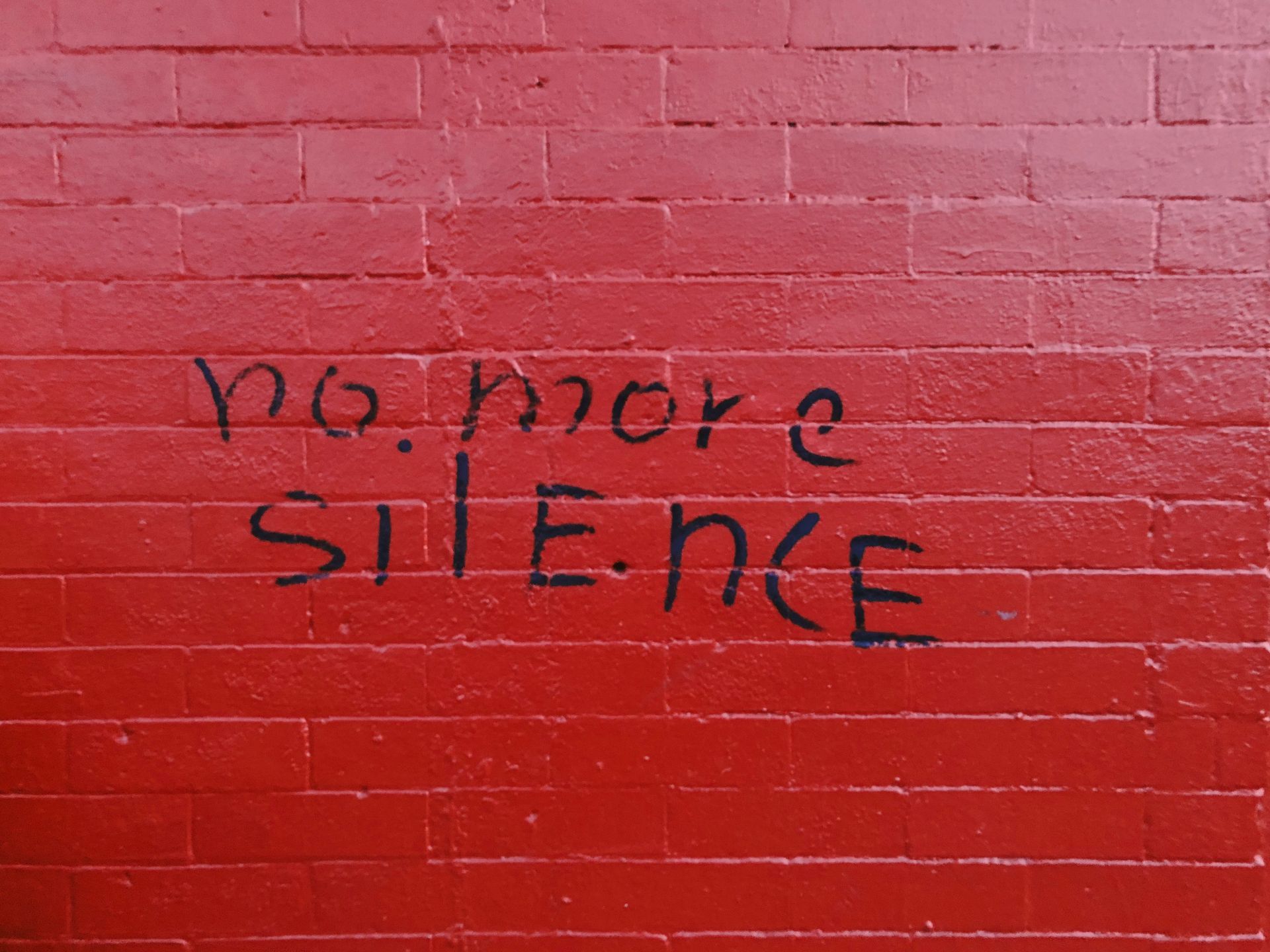
Uganda’s approach to sexuality education is trapped in silence; a silence fueled by cultural taboos, conservative backlash, and the persistent myth that knowledge equals moral decay. But the cost is devastatingly clear: each year, thousands of girls endure teenage pregnancy, unsafe abortion, sexual violence, and preventable school dropouts: all deeply gendered harms. Keeping girls uninformed is not culture. It is control. Patriarchal systems thrive on girls’ subjugation. Religious gatekeepers conflate morality with ignorance. Politicians barter girls’ futures for votes. A truly feminist approach must name this for what it is: a deliberate barrier to girls’ power over their own bodies and futures. The State of Sexual and Reproductive Health in Uganda: A Crisis Engineered by Silence The statistics are not accidents. They are the direct result of systemic neglect. 25% of Ugandan girls aged 15–19 are already mothers or pregnant (UNFPA, 2024). When COVID-19 hit, school closures and lockdowns pushed a thousand more girls out of classrooms and into risk (Forum for African Women Educationalists Uganda Chapter, 2021). Between March and June 2020 alone, pregnancies among girls aged 10–24 seeking first antenatal care rose by 22.5% from 80,655 to 98,810 cases. The youngest girls paid the heaviest price: pregnancies among girls aged 10–14 skyrocketed by a staggering 366.5%, from 290 in March to 1,353 by September 2020 compared to an increase of 25.5% among girls aged 15–19 and 21.1% among young women aged 20–24. Although the incidence of early marriage was lower, 2.8% of girls and young women surveyed, reported being pressured, sometimes by their own parents to get married during the lockdown. Child sexual abuse is also pervasive. According to Male, Faiaz, Rao, and Raj (2023) 59% of women reported sexual abuse in childhood, and national data showed that 1 in 3 girls under 15 were forced at first sex. The silence around consent and bodily autonomy leaves girls defenseless against such violence. This is not merely a “cultural issue.” It is a political choice. This neglect disproportionately harms rural girls, girls with disabilities, and those living in poverty, deepening their marginalization and denying them access to even the most basic information about their bodies and rights. While a National Sexuality Education Framework exists in principle, it remains limited, inconsistently implemented, and culturally contentious. It fails to meet the realities of adolescents across Uganda. Who Blocks Progress? Naming the Gatekeepers Conservative leaders weaponize culture to suppress girls’ autonomy while ignoring the abuse that silence enables. Underfunded systems leave teachers untrained or too fearful to address sexuality beyond basic biology, perpetuating dangerous myths like menstruation being unclean. Corporate exploiters profit from unsafe abortions and watered-down health programs that depoliticize girls’ rights and silence feminist resistance. A Feminist Way Forward: Truth as Resistance We reject the lie that knowledge corrupts. Comprehensive sexuality education does not corrupt culture; it disrupts the systems that profit from girls’ ignorance and silence. At Femme Forte, we demand: A rewritten National Framework that boldly names power and rights. Teach contraception, consent, and bodily autonomy, without apology and without compromise. Policies shaped with girls, not for them. Girls must lead these conversations, set the agenda, and hold leaders to account. Funding that bites. Redirect budgets from vague awareness campaigns to grassroots feminist educators who break stigma every day and meet girls where they are. To parents: Fear will not protect your daughters, but knowledge will. To leaders: Stop hiding behind tradition. Your inaction fuels rape, poverty, and preventable deaths. To girls: Your body is yours. Own it. Defend it. Define your future. The Revolution Will Not Be Whispered Uganda’s girls are not victims waiting to be rescued they are fighters, denied tools by those who fear their power. We owe them more than pity: we owe them the mic, the curriculum, and the future that is rightfully theirs. Silence is not safety. Shame is not protection. Knowledge is power and we will not settle for less. References Forum for African Women Educationalists Uganda Chapter. (2021). Research Findings on the Situation of, and Impact of Covid-19 on School Going Girls and Young Women in Uganda. Male, S. S., Faiaz, M. M., Rao, N., & Raj, A. (2023, January 22). Home: Publications. Retrieved from AfroBarometer: https://www.afrobarometer.org/publication/ad593-majority-of-ugandans-see-domestic-violence-as-a-private-not-criminal-matter/ Ministry of Education and Sports. (2018). National Sexuality Education Framework. UNFPA. (2024, April 19). Home: Latest News. Retrieved from UNFPA: https://uganda.unfpa.org/en/news/young-innovators-create-solutions-ending-teenage-pregnancy Article by Jacqueline Nampijja
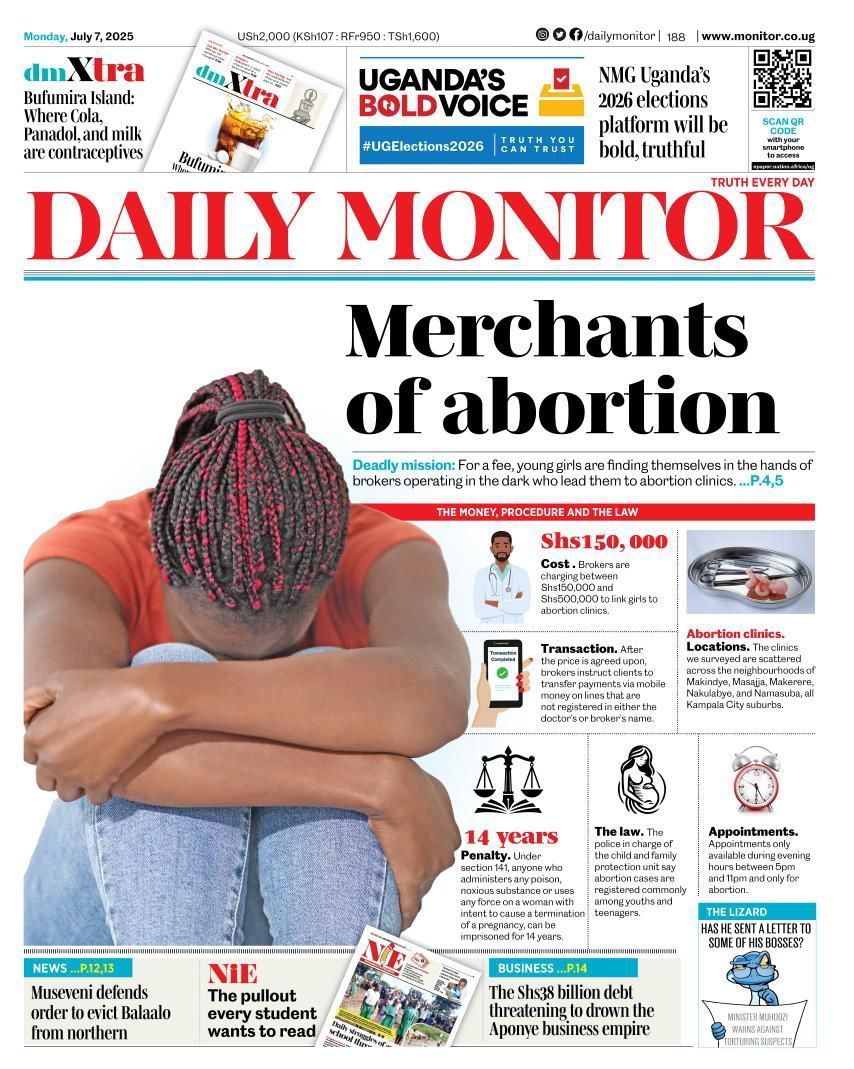
Summary of the Editorial Stance The editorial strongly criticizes so‑called “abortion merchants,” calling for strict enforcement of Uganda’s abortion laws. It frames abortion as criminal and morally reprehensible, pressing police to “crack the whip” on providers. It makes little allowance for nuance, even in cases vulnerable to unsafe abortion, such as rape, extreme poverty, or health risks. Femme Forte champions bodily autonomy, reproductive justice, and movement‑building rooted in African feminist leadership. Our key principles include: Centering women's lived experiences: women and girls must be recognized as autonomous agents, not simply passive subjects. Addressing structural inequality: legal restrictions intersect with poverty, limited access to contraception, gender-based violence, and stigma. Upholding dignity and safe care: we insist unsafe abortion deaths are preventable consequences of legal and social neglect . Critical response to the editorial Ignoring nuance and real harm By lumping all abortion providers as “merchants,” the editorial erases the difference between profiteers and compassionate health workers operating in a restrictive, ambiguous legal environment. This ambiguity fuels unsafe abortions, estimated to cause 8–15% of maternal deaths. Criminalization deepens inequity When services are criminalized, only those with means can access clandestine care from health workers. Poor and rural women are left to resort to unsafe methods often self‑induced or via untrained healers, leading to serious complications. Stigma undermines health The editorial’s tone amplifies stigma. Even post‑abortion care, allowed under law, is compromised by moral condemnation. Health workers face ostracism or legal threat when providing such care.

Periods are not shameful. They are not dirty, impure, or something to hide. And yet, for generations, we’ve been told otherwise. We’ve been taught to whisper, to conceal pads like contraband, to carry the weight of stigma in silence. That silence is not accidental, but a product of systems that have ignored, controlled, and shamed the bodies of women, girls, and people who menstruate at the cost of our dignity, health, education, and sense of self. At Femme Forte, we believe in breaking that silence. We believe that storytelling is a form of resistance. That saying this happened to me is both personal and political. That speaking openly about our first bleeds; the confusion, the fear, the pride, and the pain is a radical act. Every time we share our period stories without shame, we reclaim power. We tear down the walls of taboo. We remind the world that our bodies are not problems to fix, but lives to honor. Story 1: A Quiet Warning, A Loud Awakening I was 15 years old when I got my first period. It came suddenly, without warning, and turned an ordinary day into one I will never forget. I remember sitting in class, feeling a strange discomfort. When I went to the toilet and saw the blood, my heart dropped. Panic washed over me. I was scared, confused, and overwhelmed. I knew this day would come, but I was not prepared for that moment. In my home, periods were not openly talked about. My mum had once sat me down and said, “When you see your period, it means your body is ready. If you have sex now, you will get pregnant.” That sentence stayed with me. It felt like both a warning and a weight. When my period came, it didn’t feel like just a physical change. It felt like something deeper. I didn’t feel like a child anymore. I didn’t tell anyone at first. I was embarrassed and unsure. Was this normal? Was it too early? Too late? I didn’t know what to think. Eventually, I told my mum. She nodded and reminded me again to be careful. Her words were filled with love, but also a quiet fear. It was the kind of fear passed down from mother to daughter, generation to generation. It was about protection, but also about the unknowns of growing up as a girl. Looking back now, I wish I had prepared more. I wish we had talked more openly. My period was not something to fear. It meant I was healthy, human, and growing into a new stage of life. That day at 15 was the beginning of a journey. It started in fear, but over time, I replaced that fear with pride and strength. Story 2: A Rumor That Stung Deeper Than Cramps I got my first period when I was in Senior Two. It was a deeply traumatizing experience. I noticed blood while cleaning myself in the morning. Scared and confused, I couldn’t tell anyone. I had no access to sanitary pads, so I used toilet paper. I stayed out of class for three days, hiding in the toilet, trying to manage heavy bleeding and painful cramps. Eventually, I went to the school nurse. She treated me and told me it was a normal part of growing up. I started to feel a little safer. But then, everything changed again. Rumors spread around school that I had an abortion. I didn’t even understand what that meant. I had never been sexually active. The shame and confusion were unbearable. I felt exposed and judged. I hated that school so much that I asked my parents to transfer me. And they did. All I needed was information, support, and privacy. Instead, I got silence, shame, and false rumors. That first period left a scar that stayed with me for years. Story 3: A Piece of Cloth and a Lesson in Silence I was raised by a single mother. She worked long hours and was often gone early in the morning and back late at night. I got my first period at 11 years old, in Primary Five. My mother wasn’t home. I was with my sister, who was just a bit older than me. When I started bleeding, my sister gave me a piece of cloth. We didn’t have any pads. I was scared, but also lucky to have seen her use sanitary products before. She had explained a few things to me. School had also taught us a little about body changes. So, I understood what was happening, but I didn’t expect it to feel so painful or so emotional. When my mum came back, I told her. She didn’t say much. She sent my sister to buy pads and told me to stay clean and not stain my dress. She didn’t ask me how I felt. She didn’t hug me. I was left with so many questions. What were those clots? Why was the flow heavy some days and light on others? No one told me. Over time, I learned more from my sister and friends. She was the one who taught me to use painkillers. I became so afraid of staining that I started using layers of pads, cloth, and toilet paper, even though I later learned that wasn’t the best idea. It wasn’t until recently, in my current workplace, that I finally shared my first period story. After reading “What We’re Told Not to Talk About” by Nimko Ali and listening to heartbreaking stories from colleagues, I realized something important; periods should not feel painful, lonely, or shameful. But for too many of us, they still are. Story 4: Blood, Whispers, and Becoming I was in Primary Seven, in boarding school, when I got my first period. It was a normal morning, until I saw blood on my bed. I froze. I knew what it was, thanks to science class, but I still panicked. I didn’t know what to do. I pretended to be sick and stayed in bed. I wasn’t ready to face anyone. When the dorm emptied out, I told the matron. She helped me, but then she told some of the older girls. Maybe she thought they would support me. But instead, the whispers started. They told others. I saw the glances, the giggles, the quiet talk behind my back. What should have been a private moment became a public trial. I felt humiliated. I withdrew from everyone. That experience marked me. It wasn’t just about blood. It was about shame, silence, and being made to feel small during one of the biggest changes of my life. Now I know better. I know that periods are natural. What isn’t natural is the way we are made to feel about them. If my story makes one person feel less alone, then it’s worth telling. Story 5: Love, Confidence, and Valentine’s Day I got my first period on Valentine’s Day while I was at school. I was sitting in class when I felt something warm. My pants were wet. I asked to go to the washroom. When I checked, I saw the blood. I had started my period. Thanks to what I had learned about menstrual hygiene, I stayed calm. I went to the dormitory, cleaned up, and managed everything on my own. Later that day, I called my mother to wish her a Happy Valentine’s Day. I also told her about my period. She was so excited. She sent me one hundred thousand Ugandan shillings. That money felt like more than a gift. It felt like love. It felt like a celebration. My first period became a moment of joy, support, and confidence. And I will always remember it that way. Menstrual Hygiene Day (May 28) Menstrual Hygiene Day is observed every year on May 28 to raise awareness about the importance of good menstrual health and hygiene. The theme this year, “Together for a #PeriodFriendlyWorld,” calls for collective action to ensure that menstruation does not limit access to education, health, or opportunity. This message is especially urgent in Uganda, where over 1.2 million girls aged 12-18 face challenges related to menstrual hygiene management, according to the Ministry of Education and Sports. UNESCO also reports that menstruation is a leading cause of absenteeism among school-aged girls, with many missing up to 5 days of school each month due to inadequate facilities and resources. These statistics represent real lives and stories. Stories where a lack of support, supplies, or even basic knowledge can lead to shame, isolation, and missed opportunities. For many, especially young girls, access to information and education isn’t just helpful, it’s a lifeline. We want to hear from you. If you remember when your period first came, where you were, how it felt, and what it meant — tell us. Whether it was awkward, terrifying, empowering, or beautiful, your story matters. Send it to info@femmeforteug.org .

I once went to the Ggaba fish market on a rainy day and the road had turned into a soupy mess. If you have been there, I do not have to describe to you the sticky black earth that became glue for a laden bicycle, bringing it down and blocking a pathway. This forced people to make their way through a food stall and in particular, to jump over some matooke. A few women, foreigners, managed to do it but I was paralysed. After standing there for a moment, I asked the lady in the stall. ‘Can I jump?’ It was the sort of question a child asks when they know they shouldn’t do something but want an adult to absolve them. She said ‘Bwoba toli Muganda, buuka.’ If you are not a Muganda, jump. The culture says simply, ‘Do not jump over food.’ I found another way. Culture dictates what can and can’t be done. It guides and protects but it can also restrain. If a cultural norm could hold me back from crossing a path, imagine one standing against a woman’s ability to own land. In Uganda, few things are as prized as land. This makes its exchange and ownership almost sacred. When land is combined with women, the temperature rises across cultures. The words ‘Our culture says women do not own land.’ are often mentioned, leaving people throwing their hands up in defeat. And yet, it is no secret that families where women are alienated from land rights see a decline in everything from nutrition, household income and education levels for children. Women in Uganda can own land by buying it. However, without a strong financial base, the only other ways are through inheritance and marriage. Where women cannot inherit family land, marriage becomes an avenue. Should a woman be unable to inherit land from her husband or if she remains unmarried, her chances of owning land reduce even further. We cannot discuss land in Uganda without looking at the word ownership. In the pre-colonial times, a lot of the land was communally owned and it still is in many places. Whereas women didn’t have ownership, they could have user rights or access rights. They could farm on and construct on the land. This has remained the case today. I did a tour of 5 tribes in Uganda to get a reading of what the different cultures really say about women and land ownership. LUGBARA, THE TEREGU What culture used to say: As head of a family, a man can take a decision like selling his wife’s land without her permission. The advent of colonialism gave women of the Teregu tribe the semblance of a voice. Now they could report their errant husbands to the Local Councils and to the police. Enough husbands were imprisoned that it became a point of concern for the elders. Together with the chiefs, the elders sat down and put a curse in place to curb this practice. Should a woman ever report her husband to a civil court, she would suffer supernatural consequences. This is known as the Aruba practice. It was an effective deterrent and it became part of the culture. Unfortunately, since the men knew that they were insulated, it led to a repeat of the maltreatment women were reporting in the first place; including acts like selling land a woman had bought for herself with impunity. What culture says now: Fast forward to the 2000’s and once more the chiefs and elders sat down and scrutinized the situation and found it to be unfair to women. To make things more equitable, they decided to undo the curse that had tied women's hands. After some sacred rites, it was declared okay for a woman to report a man with no fear of harm befalling her. This means that it is no longer acceptable for a man to, for instance, sell his wife’s land without her consent. However, some people ignore the updated cultural edict, and choose to follow what was done in the colonial times. Their excuse is that ‘Our culture says…’. TOORO What ‘they’ say culture says : “Women are free to own land.” “We do not give women land.” Among the Batooro, there is equity. Still, others whisper that they do not give women land. This is an example of people modifying culture to serve their interests. What culture really says: Women in Tooro can and do own land and it can be attained through inheritance. Grandparents for instance can give land to either female or male grandchildren. This is however more respected when this gifting is documented or is mentioned publically. In the absence of that, males tend to be given higher consideration when land is being shared. Upon the passing of a father, it is not uncommon for the family home to be left to the widow and his daughters and not the sons. One daughter of Tooro mentioned that her late father has 3 heirs; 2 daughters and a son. All decisions about the estate are taken by the trio and this is not frowned upon customarily. I spoke to women who had themselves inherited land from their fathers and knew several others. While there are families who opt to only have male heirs and males owning land this is a personal choice and doesn’t appear to have cultural backing. Additionally, there is no social barrier should a woman wish to buy land. No one will ask her ‘where she got the money.’ Tooro culture today Marriage used to be the only avenue for women to get land but the thinking around marriage has changed, and this has in turn shifted the thinking around land rights. Some women do not marry, others freely end marriages they are unsatisfied with. This phenomenon has led parents to think about the future of their daughters. “It is no longer just about the boy, people have realized that when parents die, their girls suffer. And if your children suffer then you have not died peacefully,” said one mother. Today parents are taking steps to leave assets to both girls and boys and this is something that is respected in the culture. In addition, women are more enlightened and can ask questions when they are left out of land sharing. ACHOLI What culture says: Girls and women do not inherit family land. Mothers however are conduits for their children, specifically boy children to own land. In Acholi, as in many other places in Uganda, polygamy is a common practice. Here, a husband may allocate different portions of land to different wives. When Akello got married, her husband gave her land on which to raise their children. When he passed away, Akello retained that land and was able to build on it as well as grow crops and rear some animals. When her co-wife’s son, Ocen, tried to seize Akello’s land, she ran to the elders. They pointed to Ocen and said. ‘This is not your land. Your father gave your mother the other land, you should inherit that.’ At this point, the elders realised that mothers, despite not having full land rights themselves, were conduits for their children, specifically boy children, to own land. For this reason it was important to include women in the land conversation. Should a mother have only girls, their sons, her grandchildren would inherit that land. Once more, this made marriage a key area for a woman to gain stability. There was no consideration put in place for a woman should she leave her marriage. Some families however welcome women to return to the parental home should a marriage end or should their daughter become a widow. Culture today Benevolent fathers or brothers can offer daughters and sisters land user rights but there are limits to what she can do with the land. While this is one of the best case scenarios, having user rights alone is untenable. Women in this situation need to ask for permission to fully benefit from the land. They live in uncertainty because the owners can change their minds at will. Women across the country are encouraged to embrace user rights and perhaps use them to earn money to buy land they can own fully. Today, a father or mother in Acholi may decide to give their daughter land outright. And if she has the money, she may buy herself land. However, depending on the society she finds herself in, it might be easier for her to front a male as the buyer and secretly own the land. In the recent past, the certificate of customary ownership has become popularised. It allowed all family members/owners, without excluding the women, to be documented. Despite this, some families have chosen to go against it and not include women. A saying in Acholi is cited “Ceere pat pat”, literally meaning; “Even though we are one tribe, what happens on that hill isn’t normal to this one.” For instance; Just because you choose to give your daughters land, doesn’t mean I should do the same. BUGANDA What ‘they’ say culture sa ys: “In our culture, a woman does not inherit land. In our culture, a woman does not inherit her husband’s land. It can only be inherited by their children. In the absence of said children, the land reverts to the man’s larger family.” What culture says: Traditionally, neither men nor women owned land, all land belonged to the Kabaka. Instead, they had user rights. With colonialism came private land ownership and for reasons of society and economics, it was men who were primed to take advantage of this. However, no law barred them from giving land to their daughters and some did, allowing women to own land outright. Women could also inherit land from their other relatives. Prior to that, a woman could also gain land user rights through marriage. These rights were predicated on the husband’s life. Upon his death, her brothers would come to take her back to her family of birth. However, it was important that her children who are considered to be of the father’s clan be taken to their father’s people. If the widow did not remarry, or if a daughter had never married, she would stay on her father’s or brother's land and would have land user rights until her death. It was generally understood that women should not be dispossessed. When it came to inheritance, a man would have 2 heirs, a male and a female co-heir called the Lubuga. This could be a sister or niece and the two worked hand in hand. Likewise, a woman would have 2 heirs. The advent of colonialism and western religions undermined the existence of the Lubuga for men, greatly exalting the primary male heir. It is also important to note that Baganda can make a distinction between heirship. Omusika owomusayi (of the blood line) and Omusika ow’ebintu (an heir to the property). Omusika owomusayi stands in the place of the deceased and takes over their responsibilities. For instance, the musika for a father would perform the duties of the father, essentially becoming a father to the late’s children. However, omusika ow’ebintu, of the property, including land, can be either male or female, especially in more modern times. In Buganda today, a woman can inherit land from her father, her mother, her relatives, her husband and she may buy land for herself. I found some parents who prefer that daughters inherit the family property. They feel that girls take better care of property and are deemed more sentimental to their parents’ legacy. BAGWERE What culture said: There isn’t a well-documented literature of the Bagwere culture and traditional perspective so some norms were borrowed. But when it comes to land ownership, customarily, daughters were not given a share of land. Women owned land by buying it or via marriage. The latter is a major reason why daughters were not catered for in family land sharing. There was a belief that she would be taken care of by her husband and that if she was given land, she would take away what was considered one family’s wealth and give it to another. This belief cuts across all the tribes I interacted with. However in reality, across all tribes, women would actually not get land from their husbands, the land was reserved for their male children, if at all. Among the Bagwere, a widow was entitled to a share of her late husband’s land to do with as she pleased but it is unclear if she had full ownership rights. If a marriage ended, her father or the head of the family might give her land to live on but this was and is not mandatory. What culture says now: Then as now, there were cases where a family head gave land to his daughters. The culture has evolved its thinking to the point that now daughters can be installed as heirs for their fathers. However, the heir is not meant to sell the land but keep it for family use. The same applies even if the heir is male. Barring any of the above, in some families, girls are assertive enough to stand up and demand for a share if they are left out in family land distribution. In researching this story, I found culture to be like an endless onion. One layer reveals another and another and another. It was impossible to condense it. However, there were 3 stand outs: The first being that culture is not static. As with the Lugbara, it can shift to solve an issue and shift again to solve yet another one. I learnt that by and large, people will do what makes them most comfortable, physically and psychologically. Some people will look at culture and choose not to follow it…they will say, ‘I know our culture thinks I should not, but I will give my daughter this land.’ Others will say, ‘Culture says I should let my brothers’ widow retain his property but I will not.’ Second, I learnt that because our cultures are not well documented and are passed on orally there is room for distortion. But to that point, unlike the western legal system we inherited, cultural landmarks are not laws that one will be punished by. Just like at the Ggaba market, no one was there to arrest me if I skipped over the food, but I could not do it. Lastly, I learnt that culture is an ongoing conversation. By virtue of people being representatives of culture, it means that culture is alive and living things change. So is culture to blame for women’s land disenfranchisement? You be the judge. This story was written by Anne Kirya and supported by the FOTEA and OXFAM Stories4Change program. Illustrations by Shem Kamba. It was written in consultation with people from different cultures; mothers, fathers, grandparents, grandchildren, elders, sons and daughters. Adomati Aldo, Maria Ndagire Kirya, Richard Kirya, Kamba Saleh, Mrs. Nyakana, Kenyana Anne, Christina Kaijabwangu Ebinu , Sunday Akumu, Jimmy Ochom, and David F.K Mpanga.

The interplay between civil society and technology in Uganda's electoral context presents both challenges and opportunities. As the 2026 elections approach, it is imperative for stakeholders to collaborate in fostering a digital environment that promotes transparency, inclusivity, and democratic participation while safeguarding against potential abuses of power. Through concerted efforts, Uganda can harness the potential of technology to strengthen its democratic processes and civic engagement. Think about it, as Uganda approaches its 2026 general elections, the intersection of civil society and technology has become increasingly significant. Civil society organizations (CSOs) are now more than ever leveraging digital tools to enhance civic engagement, promote transparency, and advocate for democratic reforms. Simultaneously, the government's approach to digital regulation and surveillance has raised concerns about the balance between national security and civil liberties. Let’s together explore the evolving landscape of civil society and technology in Uganda, highlighting key developments, challenges, and opportunities as the nation prepares for its next electoral cycle. We shall dive right into the various digital initiatives contributing to conscientization of citizens and holding government accountable. Ugandan civil society has embraced technology to foster greater citizen participation and governmental accountability. Some notable initiatives include: Parliament Watch Uganda: this platform monitors parliamentary proceedings and disseminates information to the public, enhancing legislative transparency. The Citizen Report : By promoting a civically engaged public, The Citizen Report aims to cultivate well-informed communities where both leadership and citizens are equipped with knowledge of their responsibilities to each other and their society. U-Report: Launched by UNICEF Uganda in 2011, U-Report is a mobile-based platform that engages youth in national dialogues through SMS polls on various social issues. Women of Uganda Network (WOUGNET): Established in 2000, WOUGNET empowers women through ICTs, focusing on digital literacy, online safety, and advocacy against online gender-based violence. Among many other initiatives, and now with the increased usage of social media and all her platforms, society has been provided with alternative spaces for discourse, especially among the youth, who constitute a significant portion of the population. Social media platforms like Tik Tok, Facebook, Twitter (now X), and WhatsApp have become vital tools for political mobilization and civic engagement in Uganda. These platforms have been instrumental in organizing protests, sharing information, and fostering community discussions on governance and human rights, social media has become a civic space! Social Media Regulation The Ugandan government has announced plans to regulate social media ahead of the 2026 elections, citing concerns over misinformation and national security. Dr. Chris Baryomunsi, Minister of ICT and National Guidance, stated that new policies and technologies would be introduced to monitor and control digital communication platforms. While the government asserts that these measures aim to prevent the spread of false information, critics argue that such regulations could suppress freedom of expression and silence dissenting voices. The Uganda Communications Commission (UCC) also plans to acquire advanced digital monitoring technologies, including AI-powered tools, to filter harmful content online. These systems are expected to identify hate speech, incitement, and misinformation, with capabilities for real-time monitoring of high-traffic social media channels. While the government emphasizes user safety, civil society groups express concerns about potential overreach and infringement on digital rights. That’s not all. The Electoral Commission of Uganda is already facing challenges in implementing a mandatory biometric voter system for the 2026 elections. Issues include low participation in voter register updates, technical and logistical hurdles, and concerns about potential voter disenfranchisement. Experts warn that without adequate preparation and voter education, significant portions of the electorate could be excluded from the voting process. So what does all this mean for civic space and organizing? Civil society organizations must advocate for expanded public consultation and transparency in the implementation of biometric systems. They ought to emphasize the need for inclusive processes that consider the technical, financial, and social implications of such technologies to ensure electoral integrity and public trust. It is very clear that the government's efforts to regulate digital spaces raise critical questions about balancing national security with individual freedoms. While combating misinformation is essential, it is equally important to safeguard freedom of expression and prevent the misuse of surveillance tools for political repression, but at what and whose cost ? There is a pressing need to enhance digital literacy among citizens to navigate the complexities of the digital information landscape. Civil society can play a pivotal role in educating the public about digital rights, online safety, and critical evaluation of information sources, as they already have been doing - so why does the journey seem far from ending? While this dance takes shape and everyone slowly finds their footing, let us all be reminded that ensuring safe and practical technological advancements in the electoral process with inclusivity is vital. Special attention should be given to marginalized groups, including women, rural populations, and persons with disabilities, to prevent digital divides from exacerbating existing inequalities. And while all that is happening, will technology save us this election cycle or make things worse? Think about it! Article by Penelope Sanyu
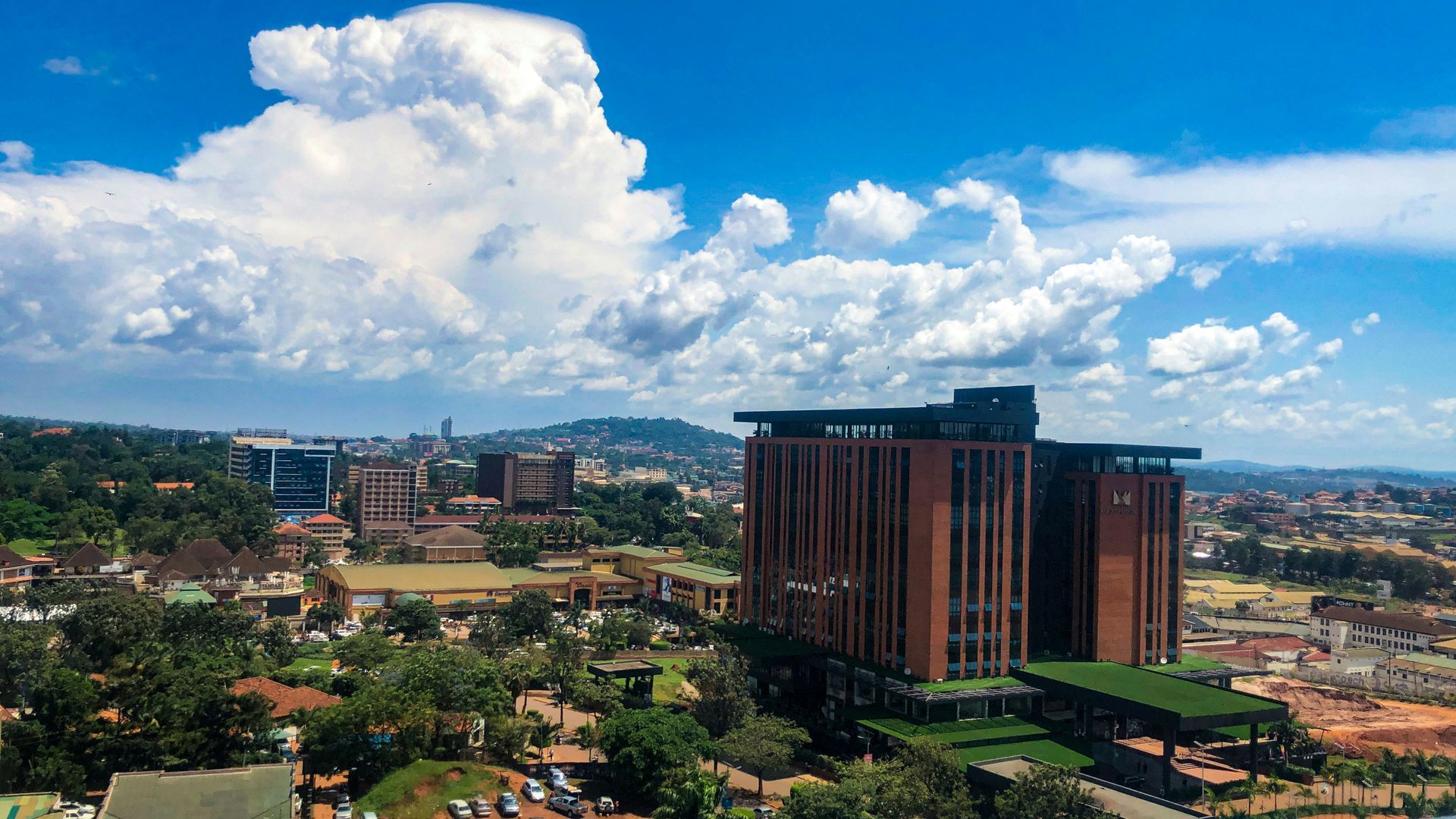
In the hills of Mbale, a foreign company builds a factory. The community loses its water source. In Kampala, a social enterprise struggles to scale because funding only follows profit. The pattern is clear: capital is flowing, but impact is not. In Uganda, investment is not new. Capital has always found fertile ground here. But the question is no longer whether we are attracting investment. It’s whether the investments we attract are building communities, or simply extracting from them. Impact investment offers an alternative; a model that marries financial return with measurable social and environmental outcomes. Yet in our local context, where traditional investment models still reign supreme, this approach remains misunderstood, underutilized, and sometimes outright ignored. Traditional investments in Uganda concentrate in high-return sectors that often benefit the few at the expense of the many. Real estate and construction have transformed Kampala’s skyline, but these developments frequently exclude low-income communities and drive up the cost of living. In extractive industries like oil, gas, and mining, profit margins soar while the communities closest to these resource zones are displaced, under-compensated, and left worse off than before. Large-scale commercial agriculture has expanded, often through foreign direct investment, but local farmers are pushed to the margins. Land grabbing, loss of biodiversity, and exploitative labor practices are recurring themes. Meanwhile, microfinance institutions and traditional banks lend at high interest rates, trapping borrowers in cycles of debt. Import-driven trade, though profitable, does little to empower local industries, and infrastructure deals under public-private partnerships often prioritize returns for the private sector over access and affordability for citizens. The result? A lopsided development trajectory: profitable on paper, extractive in practice. Impact investment disrupts that narrative. It is not philanthropy dressed as finance; it is intentional capital that asks harder questions. Can we generate returns while reducing maternal mortality? Build solar grids that deliver both power and profit? Empower women entrepreneurs and still grow the bottom line? Globally, the impact investment movement is expanding. From climate-smart agriculture in India to affordable housing in Latin America, investors are realizing that doing good does not have to come at the expense of doing well. But in Uganda, this ecosystem is still young. Awareness is low. Platforms for social entrepreneurs are few. Incentives for community-aligned investing are even fewer. And yet the need has never been greater. Uganda has one of the youngest populations in the world. Youth unemployment, gender inequality, and the climate crisis are not just development challenges, they are investment opportunities waiting to be redefined. Social enterprises are emerging, civil society organizations are innovating at the grassroots level, and women are leading informal businesses with grit and grace.

